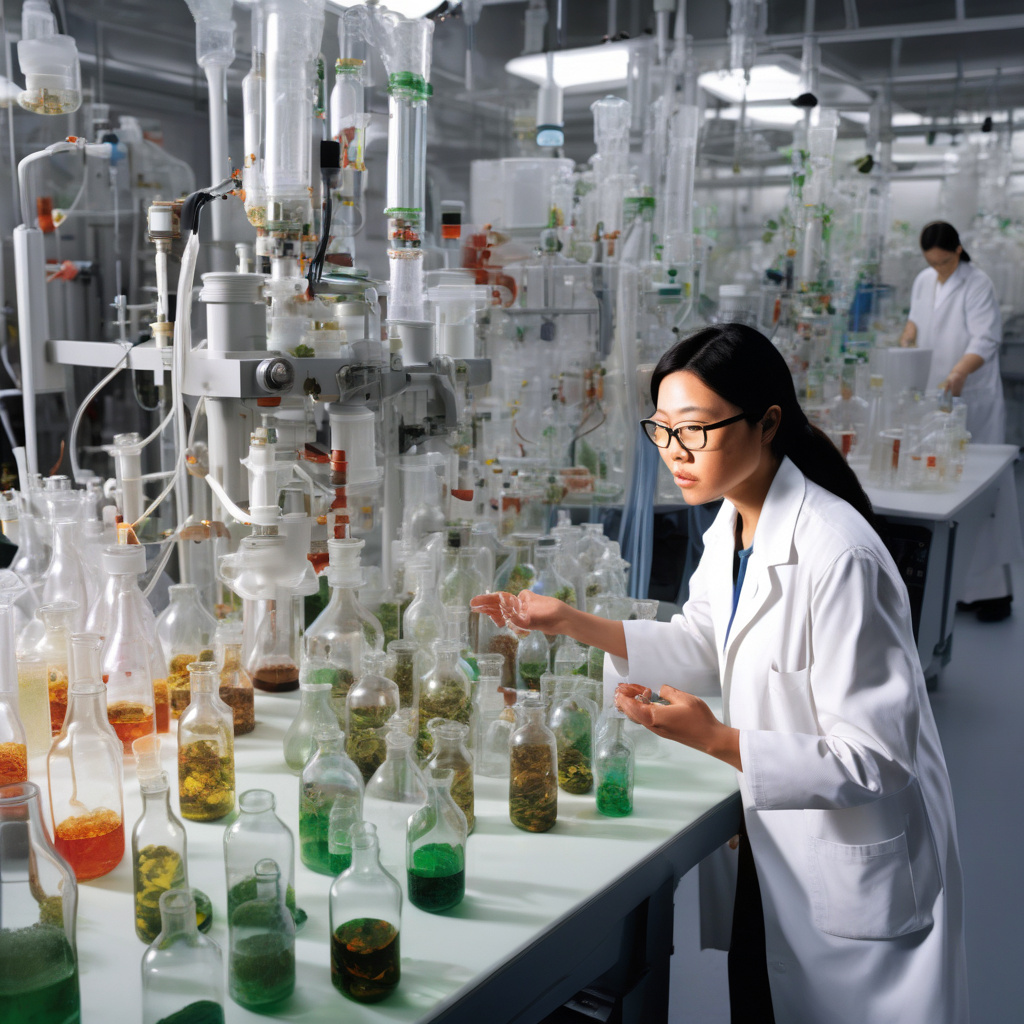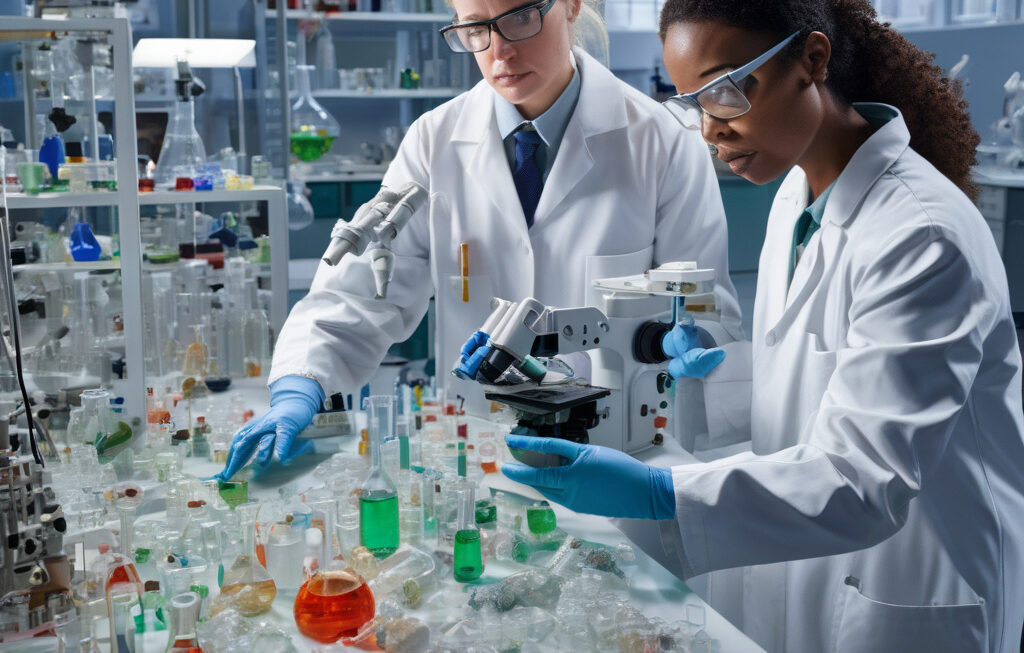Innovative Catalyst Transforms Plastic Trash into Fuel with Fewer Byproducts
A University of Delaware-led team has developed a new catalyst that converts plastic waste into valuable fuel with significantly fewer harmful byproducts. This groundbreaking technology has the potential to revolutionize the way we think about plastic recycling and waste management, offering a sustainable solution to the global plastic crisis.
Plastic pollution has become a pressing environmental issue in recent years, with millions of tons of plastic waste ending up in landfills and oceans every year. Traditional recycling methods are often inefficient and costly, leading to only a fraction of plastic being recycled and the rest polluting the environment. However, this new catalyst offers a ray of hope in the fight against plastic waste.
The catalyst works by breaking down plastic molecules into smaller hydrocarbons, which can then be refined into fuels such as gasoline and diesel. What sets this technology apart from existing methods is its ability to minimize the production of harmful byproducts during the conversion process. This means that not only are we able to reduce plastic waste, but we can also do so in a way that is environmentally friendly.
One of the key advantages of this innovative catalyst is its versatility. It can process a wide range of plastic materials, including polyethylene and polypropylene, which are commonly used in packaging and single-use products. This means that we can potentially recycle a much larger portion of plastic waste than ever before, making a significant impact on reducing the amount of plastic that ends up in landfills and oceans.
Moreover, the process of converting plastic into fuel is energy-efficient, making it a sustainable alternative to traditional fossil fuels. By harnessing the energy content of plastic waste, we can reduce our reliance on non-renewable resources and lower greenhouse gas emissions. This not only helps address the plastic waste problem but also contributes to combating climate change.
In addition to its environmental benefits, this innovative catalyst also holds economic promise. By creating a market for recycled plastic fuels, it opens up new opportunities for businesses and entrepreneurs in the green energy sector. This could lead to the development of a circular economy where plastic waste is seen as a valuable resource rather than a disposable material.
While the technology is still in the early stages of development, the potential impact of this innovative catalyst on the plastic recycling industry is immense. As we strive to create a more sustainable future, solutions like these are crucial in addressing the challenges posed by plastic waste. By harnessing the power of innovation and science, we can pave the way for a cleaner, greener planet for future generations.
In conclusion, the University of Delaware-led team’s development of a new catalyst that transforms plastic trash into fuel with fewer byproducts marks a significant milestone in the journey towards a more sustainable world. By turning plastic waste into a valuable resource, we not only reduce environmental pollution but also create new opportunities for economic growth. This innovative technology serves as a shining example of how innovation can drive positive change in the fight against plastic waste.
plastic recycling, innovative technology, sustainability, environmental impact, green energy












